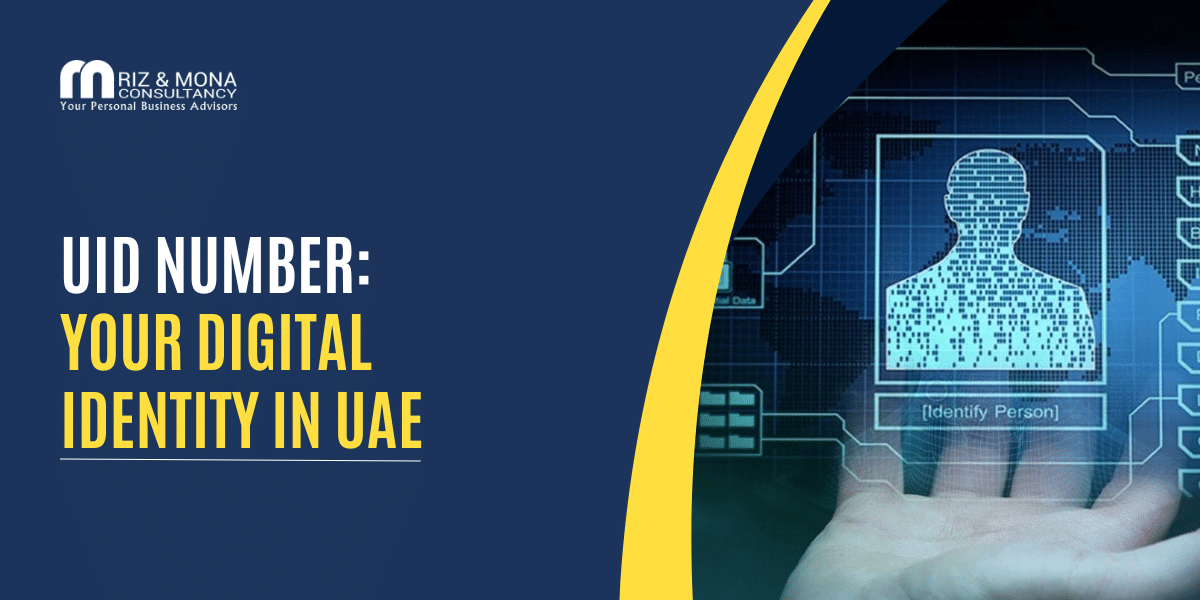Where to Find Your UID Number in the UAE
Finding your UID number is simple once you know where to look. Whether you have a physical visa stamp or an electronic visa, your UID is always accessible on key documents.
Places to Find Your UID Number:
Residence Visa
Look at the top portion of your UAE residency visa. It’s usually located right above or next to your file number.
Passport Stamp
If your visa is stamped in your passport, your UID number is printed directly on the visa stamp.
Emirates ID Card
Your Emirates ID may display your UID number, making it easy to find whenever needed.
E-Visa Document
For electronic visas, check the top-right section of your e-visa PDF.
Start Your Business Journey with Our Professional Support!
How to Obtain, Verify, and Process Your UAE UID Number
Obtaining a UID number in the UAE is usually automatic, but understanding when and how you receive it can help you stay informed and prepared.
When Do You Get a UID Number?
-
For Residents:
You’re automatically assigned a UID number when your residence visa is processed. -
For Visitors:
A temporary UID number is assigned when you enter the UAE on a visit or tourist visa. -
For Businesses:
Companies receive a UID number during registration of business in the UAE.
If you haven’t received your UID number or are unable to find it, here’s what you can do:
-
Check Online:
Use the ICA or GDRFA (General Directorate of Residency and Foreigners Affairs) websites to search for your UID using your passport details. -
Contact Authorities:
Reach out to:- ICA: Call 800 5111 (within UAE) or +971 4 313 9999 (international).
- GDRFA Dubai: Visit their website or their office in Al Jaffliya, Dubai.
-
Visit Immigration Offices:
If needed, head to any UAE immigration office with your passport and visa details to obtain your UID number.
Most UID number UAE requests are processed within 24–48 hours, but in some cases, an in-person visit may be required.
The Role of the UID Number in Advancing the UAE’s Digital Governance Sector
The UAE’s rapid digital transformation has made the UID number a key part of its digital governance framework. As the country continues to enhance its digital services and infrastructure, the UID number in UAE ensures that individuals are securely connected to this advanced system.
Why the UID Number is Crucial in Today’s Digitalized UAE:
What to Do If You Have Multiple UID Numbers
Some people accidentally get multiple UID numbers due to system errors or visa changes. This can lead to problems with visa renewals, Emirates ID applications, and immigration records.
How to Merge Multiple UID Numbers
To correct this issue, follow these steps:
- Visit the ICA or GDRFA office in person.
- Provide the necessary documents, including:
- Passport
- Visa copies (old and new)
- Emirates ID (if available)
- Submit a request to merge your UID numbers.
- Pay the processing fee (if applicable).
- Wait for confirmation (usually within 1–2 days).
Once merged, only one UID number will remain active in government records.
FAQS (Frequently Asked Questions)
Does Dubai have a minimum wage?
No, Dubai does not have a national minimum wage. However, there are salary guidelines that differ for various types of workers, which are not applied universally.
How are wages determined in Dubai?
Wages in Dubai are typically determined by employers, and they vary widely based on the type of work. Highly skilled jobs in industries like technology and hospitality can pay well, while wages in certain sectors like manufacturing may be very low. It’s crucial to compare salaries with the cost of living and negotiate with employers.
What is the minimum monthly salary needed to qualify for healthcare in Dubai?
Employers in Dubai are required to provide health insurance for employees, which includes access to public healthcare facilities. Emergency care is available to everyone, regardless of insurance status. Public healthcare is free, though many opt for private health insurance for better coverage, which comes at an additional cost.
What is considered a living wage in Dubai?
Dubai has a high cost of living. A one-bedroom apartment in the city center typically costs around AED 7,000 per month, which exceeds the minimum wage of some workers. A single person can expect additional monthly living expenses of around AED 3,190. To live comfortably in Dubai, a higher salary is often necessary.











